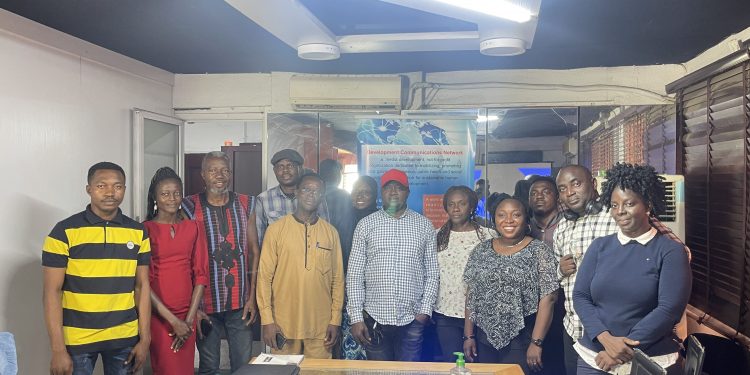Science writers and researchers have called on leaders of African countries to integrate diverse approaches to improve public understanding of science as a key factor for the development of the African Continent.
The experts made the call while speaking at the Africa Science Journalism Webinar organized by Development Communications Network (DevComs Network), with the theme Beyond ‘S/He Said”: Basics Of Reporting In The Context Of Scientific Research.’
Paul Adepoju, a freelance science writer and Community Manager at the International Centre for Journalists (ICFJ) noted that media organisations need to enhance the linkage between scientists and the general public to tackle policy implementation lapses at critical moments such as response to epidemics and other public health emergencies.
“We need to be more prepared in our response to epidemics and in the dissemination of fact-based information to the public,” Adepoju added.
He encouraged journalists to broaden their horizons and “make the best out of the resources you have and be open-minded. Science stories can make front pages in as much as your story is touching the lives of people.”
Ms. Jackie Okpara-Fatoye, one of the facilitators, from SciDev.Net, said that science journalism is a specialized field and “an integral part of journalism which should take the center stage in African journalism. Science stories are not necessarily the most explosive but have one of the greatest impacts. Many problems can be found in research papers as well as their solutions. Science reporting is solutions journalism.”
Speaking about the webinar, Diran Onifade, former Vice President of the World Federation of Science Journalists and Publisher of Africa Science, Technology and Innovation (AfricaSTI) said the webinar was in continuation of the implementation of findings from a study jointly conducted by Development Communications Network (DevComs), AfricaSTI and partners in three African countries.
Onifade asserted the need to build a critical mass of journalists who are able to report science correctly, adding that there is a need for the media to use its agenda-setting capabilities to nudge society research-wise and through some other means in this direction of areas that have become existential for Africa’s development.
Corroborating him, Akin Jimoh, the founder of DevComs Network and Chief Editor of Nature Africa tasked media professionals with the need to be focused on reporting science in a manner that aids easy understanding of the public, stressing that journalists don’t need to be a scientist before reporting a scientific story.
Jimoh also noted that the theme of the Webinar series was necessitated by findings that show among others, the lack of coherent science journalism desks in media houses, the lack of collaborations between scientists and the media to mention a few.
He said even though there are interests in covering science with in-depth approaches there seems a self-limitation and a lack of a conducive environment to thrive.
Professor Adebayo Fayoyin a former Regional Communications Adviser for United Nations Population Fund (UNFPA) described the webinar as an added value to public response to other emerging infectious diseases and pandemics, saying this will enhance behaviour change processes.
The Africa Science Journalism Webinar was organized with the aim of creating linkages between scientific research institutes, the media, and the general public for improved reportage and public understanding of science and public health issues in African countries.
The project, funded by the National Research Foundation (NRF COVID-19: Strategic Media Engagement for Public Understanding of Scientific Research, Infectious/Non-Infectious Diseases), provides a platform for enhancing the triad of collaboration between the media (journalists/media institutions, scientists and the general public for proactive policy dialogue on science and development on the continent.
The partner organizations implementing the project are Development Communications Network, Nigeria Heart Foundation, Zambia Media Network Against Tobacco, Media Diversity Centre, Nairobi, Kenya and Africa Science Technology and Innovation (AfricaSTI) News.

